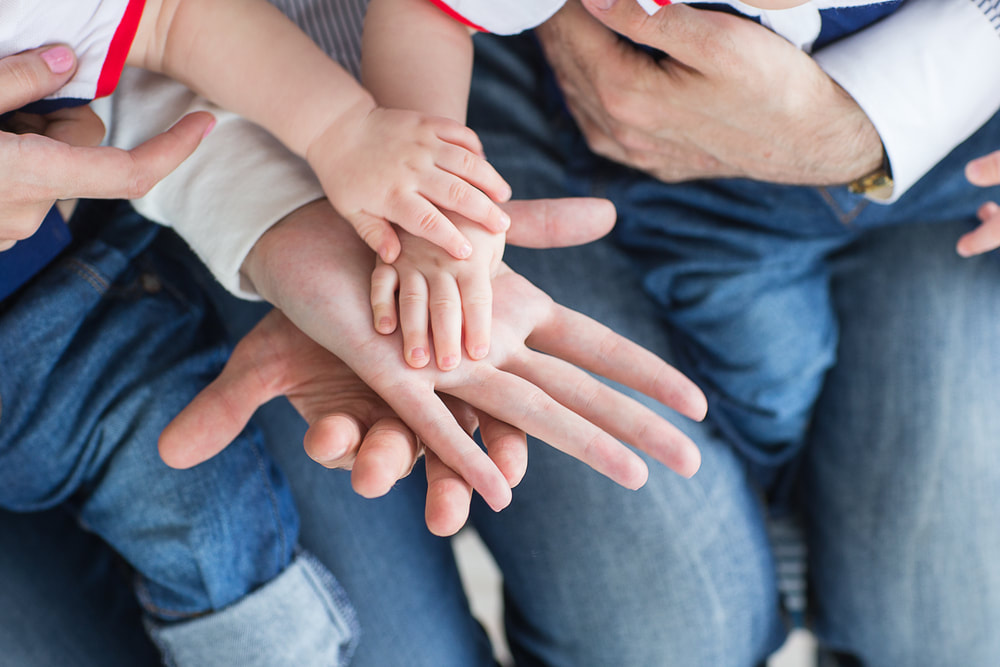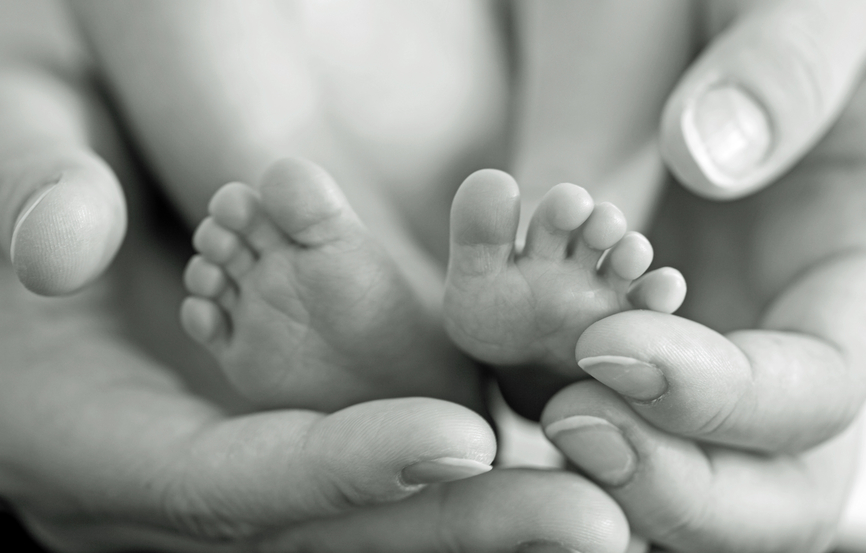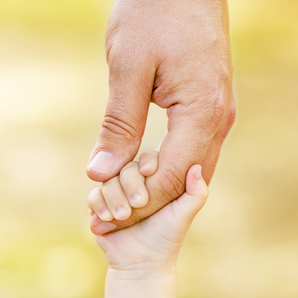|
Season's greetings, everyone! Since the last blog post, I received a letter from one divorced reader who is struggling with a question frequently seen in my therapy practice, not only among separated or divorced individuals, but with married and single people as well: "how do I communicate effectively with a 'slow-or-no' responder"? Slow-or-no responders are folks who take an unusually long amount of time to reply to emails, texts, or phone calls (if they reply at all), even when the issue at hand requires their input. If you've ever tried to make plans with a slow-or-no responder, this reader's frustration will sound familiar. Fear not! The suggested tips below are a sure fire way to free yourself from the slow-to-no response trap. Enjoy and happy holidays! Dear Dr. Jill, I have a communication-related question. Some background: My ex and I have been living apart for almost three years. We have three children. They are 6, 8, and 11. For the most part, we see eye-to-eye. We usually keep it cordial and civil. Because we have three children, there are lots of details to keep track of. Two kids in soccer and one in piano. When we were married, I was the one who took the kids to their medical appointments, practices, recitals, and such. Since we separated, the one place we struggle most is with communication. Between the two of us, I have the more flexible work schedule. This means I am on the front lines with pick ups and drop offs, appointment scheduling, etc. Sometimes this coordination requires her consent and/or her participation. That is where we clang heads. When I make a request, it takes days—even a week—to hear back from her. Sometimes I get no response. One time, our oldest son missed an important school outing because my ex didn’t get back to me in time. Our parenting plan says that all major decisions will be jointly made. So I'm kind of stuck here. I’ve tried to talk with her about this issue. She usually either gets defensive or says she’s working on it and promises to do better. With one or two exceptions, things have stayed status quo. I’m wondering if this is something you’ve helped clients with and, if so, can you give me some pointers for how to deal with it? Sincerely, Frustrated Co-parent Dear Frustrated, Sounds like this experience has neatly nestled you, right between a rock and a hard place! Making joint decisions with someone who won't decide, can be frustrating. Knowing and communicating boundaries is the most effective way to free yourself from what I like to call the "slow-to-no response trap." When coordinating with someone who is slow to respond (or who doesn't respond at all), with each request, it is important to communicate three things: the ask, the expected response time, and what you will plan to do if you do not hear anything back from her. Here is an example of what this kind of communication looks or sounds like: "Hi Brenda, I just received notice of a mandatory work meeting that is scheduled to take place tomorrow evening, when the kids are scheduled to be with me. I am wondering if you would be willing to pick the kids up from aftercare and keep them until I can pick them up at 8:00 p.m.? If you would please let me know by 6:00 tonight, that would be great. If I don't hear anything back by then, I will find an alternate arrangement. Thank you, Jim" By communicating a clear time frame and a pre-determined backup plan, any potential for Jim to feel burdened by slow-or-no response is removed. Differences like the one described in your letter are common among divorced co-parents. It is for precisely this reason that some parenting plans include a clause which stipulates that, after a written request is sent, the responding party must provide an answer within a pre-specified amount of time, after which, if no response is received, the requesting party is free to make a decision. Ideally, the parenting plan would also stipulate different response times for matters that are considered urgent (e.g., medical emergencies, school-related activities, important deadlines, etc.). If your parenting plan contains this language, I suggest calmly reminding your ex (by phone if possible—the tone of email can easily get misinterpreted) of the agreed upon timeline(s). Once you’ve referenced the agreement, it is up to you to abide by its terms. In so doing, any future disregard for the documented timeline, by either party, will be construed as permission to proceed. If your parenting document does not include the aforementioned clause, I recommend including it, ad hoc. Though you can choose to do this via the legal system, if you and your ex are pretty good about adhering to agreements, legal intervention may not be necessary. Let your ex know that you would like to work with her to come up with a response timeline that each of you will follow, for both urgent and non-urgent situations. Once this agreement is in place, write it down. Keep a copy for yourself and provide your ex with a copy to refer to in the future. After the agreement is in place, stick to it. When solo decisions are made, send a courtesy follow up email so your ex is in the loop. One final tip. Though it won't always be possible, whenever you see an opportunity to free yourself of the slow-or-no-response game, take it. Try to minimize the number of appointments, activities, and events that require cross-coordinate between you and your ex. One way to do this is to schedule kid-related activities only on your own residential time. Hopefully these tips will help free you up to do more of what you do best: love your children. Good luck! Yours In Health, Dr. Jill Dr. Jill Gross is a licensed psychologist, therapist, and counselor. She offers divorce consultation, co-parenting support, grief therapy, and other counseling services in the Phinney Greenwood area of Seattle, WA. Struggling to communicate with an ex? Schedule a free consultation to see how divorce counseling and co-parent support can help you create the co-parenting relationship your children deserve.
6 Comments
Just over half of marriages or domestic partnerships will end in separation or divorce. Though couples may struggle to reach consensus on numerous issues, most separating spouses can agree that protecting the child or children's best interest should be top priority. This sounds pretty straight forward yet, when adults posses intense feelings toward one another, it is anything but simple. If you and your soon-to-be ex are confused or struggling with how best to talk with your children about divorce, here are a few tips for keeping things on track:
It is normal for separating spouses to posses some degree of negative feelings about the other. This is particularly true in cases where one spouse did not have a choice about the divorce. Thus, I encourage both partners to lean into their adult support systems (friends, family, support groups, therapists or counselors, etc.). When the adults care for themselves and each other appropriately, everyone benefits, including and especially, the children. Dr. Jill Gross is a licensed psychologist, divorce therapist, and grief counselor in the Phinney - Greenwood area of North Seattle. If you have questions about how to nurture your children through divorce, help is just a click away. Schedule a free consultation to see how divorce counseling and co-parent support can help you and your children thrive after divorce.
Howdy folks! In my years of being both a participant and leader of therapy groups, public speaking engagements, etc. I’ve learned that, if one person has a question, chances are, others in the group have the same (or similar) question. If that question never gets asked, then no one gets the benefit of learning from it! It is for this reason I’ve decided to experiment with something a little different.
Over the past few months, I’ve gotten so many great questions via “Ask The Shrink,” that I’ve decided to publish them here on the blog. The question below is one I recently received from a reader and, given the frequency with which the topic comes up in my therapy and counseling practice, I couldn’t wait to share it with the rest of you! So, if you’ve got a question, click here to ask it and you may just see your question answered in a future blog post! Of course, all identifying information will be omitted to protect your anonymity. Hi Dr. Gross, I have a problem with my boyfriend's mother. My boyfriend and I have been dating about two years. We are both in our late 20's. My boyfriend's mother has a history of not liking her other children's "significant others." However, it really bothers me that his mother is so standoffish and judgmental towards me. Her tone and eyes are cold and she rarely offers positive affirmations of my life happenings. It makes me feel insecure and sad. My boyfriend is sad about it too. He talks to his dad who is also uncomfortable with his wife's behavior. I want to have a happy relationship with her. It is especially scary to imagine marrying my boyfriend and having her for a mother-in-law. Not sure what to do... I look forward to hopefully reading guidance you may have. Best Wishes, "Maybe-in-Law" Dear Maybe, First of all, thank you for broaching this topic! Learning how to relate to a partner’s family can be quite complex, particularly when members of that family seem reluctant to engage. When I read your letter, the first thought I had was that your boyfriend’s mother feels exactly the way her actions make you feel: sad and insecure (scared). Parenthood is a complicated stew of emotions: we want our children close yet we must also accept that they do eventually grow up. I think your partner's mother is grappling with this very issue and, rather than acknowledging the fear and sadness it often evokes, she is taking it out on the poor, unsuspecting partners of her now-adult children. In this case, that unsuspecting partner is you. You feel sad and insecure for a good reason: no one wants to be pushed away by a member of their beloved's family! If there is anything to be said or done about this, your boyfriend is the best candidate for the job. Assuming he hasn’t already done so, I would encourage him to talk with his mother and say something like, “Mom, I love you and my girlfriend so much. Nothing would make me happier than for all of us to be close and have fun together. How do you think this can happen?” This question states your boyfriend’s wishes clearly while enlisting his mother to be part of the solution. Win-win! If your boyfriend’s mother denies her behavior or gets defensive, he gets to decide the best way to set appropriate boundaries with his mother while protecting his allegiance to you. Then, the two of you get to decide on your own how much time you choose to spend with someone whose actions leave you feeling sad, insecure, or both. The fact that her son is ready to start a life and family of his own is a testament to what a good job his mother has done...she just doesn't know this yet. Keep in mind that time and consistent kindness can thaw even the iciest conditions. Though things may be a bit frosty right now, if your boyfriend’s mother continues to witness how happy you make her son, she may eventually conclude that the best way to honor him is to accept the person he is choosing to spend his life with. Thank you again for entrusting this community with your question. Best wishes to you as you navigate this challenging situation! Yours in health, Dr. Jill Speaking of community, have any of you successfully worked through in-law issues? We would all benefit from knowing how you did it! Please share your story in the comments section below. Also, feel free to share this post with anyone who may be asking their own version of this question! Dr. Jill Gross is a licensed psychologist, therapist, and counselor. She offers grief therapy, divorce support, and other counseling services in the Phinney Greenwood area of Seattle, WA. If you've got questions about your own relationship, schedule a free consultation to find out how therapy or counseling can help you!
I often feel unsure about what is harder: parenting or comparing myself to other parents who seem to have it more "figured out" than I do.
This video clip from Julie Lythcott-Haims, author of the acclaimed book, "How To Raise An Adult," served as a nice reminder that it is okay--no, it's necessary--to remove our hands from the yoke on occasion and let our children figure out how to fly, even when that mechanical beast is pointed straight toward the earth! Just Wednesday morning, my daughter, God love her, chose to oversleep, giving herself barely enough time to apply the copious amounts of expensive makeup she insists on buying (with her own money, I feel compelled to add), let alone eat breakfast and make lunch. While wolfing down a bowl of cereal she asked me if I would put a bagel in the toaster so she could eat it for lunch. Was I doing anything of significance? No (well kind of. I was writing this article). Did I toast the bagel for her? Hell no! Though the request seemed innocuous enough, toasting that bagel would have reinforced her failure to plan accordingly. Was she be hungry that afternoon? Certainly. Did she die of malnutrition? Certainly not. Did she rise fifteen minutes earlier the next morning? In fact, she did. Our job is to equip our children to cope with life which--newsflash--is FILLED with frustration, disappointment, and failure. How can they learn to handle the bumps and scrapes if we never let them fall? Though most parents say they over-function because they are afraid of how their children will feel if they don't, it is more accurate to say parents are afraid of how they will feel if they step aside and let their children construct and deconstruct their own messes. In other words, we parents are just plain uncomfortable with feeling uncomfortable. Discomfort is the enemy of neither parent nor child. It is the precursor to self-advocacy, learning a new skill, making a new friend, or solving a problem, all of which are required for proper grownup-ing. When our children lose or fail, they will feel badly for a while. This is a normal, healthy response to disappointment. Eventually, they will feel better and, each time they do, they grow a little more confident in their ability to overcome challenge. More and more in my therapy and counseling practice, I see young people who are riddled with fear and self-doubt, struggling with even the most basic of decisions. This is no longer the exception. It is becoming the norm. Research out of institutions like Keene State College and The University of Tennessee at Chattanooga are suggesting a strong correlation between helicopter parenting and poor social adjustment, higher levels of anxiety, and depression. Not quite what we had in mind when we were busy forming a human shield between the the edge of the sofa and the coffee table. Some of the most valuable lessons we learn come from what, at the time, would have easily been considered failures, mistakes--disasters even. Why deprive our children of such critical learning? So we won't judge ourselves for being neglectful? So others won't think we are bad parents? According to Lythcott-Haims, if we want to foster our children's self-esteem and self-efficacy, here are some good places to start: 1. Give them chores. Children who do chores are happier and more confident than children who don't. If children live in a house, they should be responsible for some of its maintenance. This is not punishment; it is modeling of appropriate social responsibility. Do you want your child to be the roommate no one wants to live with because he leaves dishes in the sink and clothes on the bathroom floor? Me neither! By age three, children are old enough to clean up their toys, load the dishwasher (yes, you read that correctly. Don't panic. You can rearrange them later when your child isn't looking), put dirty clothes in a hamper, etc. Increase the level of responsibility with age. My children (now 13 & 15) have been doing their own laundry for several years and it has been GLORIOUS! Sure, their socks and whites look like they escaped from the set of "Joseph's Technicolor Dreamcoat," but who cares? They don't. Neither should I. 2. Back off school. Stop asking about homework, stop doing it for them (sidebar: this should never have been started to begin with), and don't ask about school performance or grades. You already passed the K-12 grades; it's their turn now. If they are struggling, ask them what they think needs to happen to get back on track. If your kid needs extra help, hire a tutor. The headcount of parents who say tutoring their own child was more helpful than frustrating? Just about zero. 3. Stop calling their teachers and coaches. Instead, teach your kiddo how to respectfully communicate with authority figures. They need to know this stuff! 4. Teach basic life skills. I have a friend who is requiring that her teenagers know how to procure and prepare at least ten recipes before graduating high school. If you want your kids eating more than just ramen noodles and mac-n-cheese once they get to college, start taking them to the grocery store with you. Let them go through the check stand by themselves. Teach them how to cook. Show them how to use public transportation, apply for a job, open a bank account, balance a checkbook, fill out a tax form, etc. Think of everything they will be responsible for once they move out and show them how to do it on their own. Lythcott-Haims outlines a four-step method for doing this: First do it for them, then with them. watch them do it, and then let them do it themselves. In lieu of asking ourselves what more we can do to help our children succeed, perhaps it's time to ask what less we can do instead. It can be scary to give up control. So many of us believe our children's choices are a reflection of our parenting. This is sort of true--they do absorb the values we model. But mostly it's not. Our job is to plant the seeds and show our children how to garden. The rest is entirely up to them. Let's learn from each other! Got a self-efficacy success story? A question or concern? Feel free to share it in the comments section below. Dr. Jill Gross is a licensed psychologist, therapist, and counselor. She offers grief therapy, divorce support, and other counseling services in the Phinney Greenwood area of Seattle, WA. Parenting struggles got you down? Schedule a free consultation to find out how parenting support and counseling and help you!
On a sunny Memorial Day weekend in Cincinnati, a three-year-old boy traversed a barricade and tumbled into the watery mote that divides zoo spectators from its magnificent family of silverback gorillas.
What ensured was horrifying. The boy was dragged through the mote, up its wall, and into the gorilla exhibit by Harambe, the 400-lb. alpha male of the family. Harambe, perhaps driven more by protective than aggressive instincts, was shot and killed by zookeepers to prevent further injury of the boy. Thankfully, the boy is fine. The ordeal was heartbreaking. Equally heartbreaking were the subsequent blame and judgment cast upon both the boy's parents, who lost track of their son for what was probably only a minute or two, and the zookeepers, who were forced to make a split-second decision to either spare the life of a 400-lb. gorilla with dubious motives, or save the tiny human whose fate resided in his leathery mitts. Zookeepers chose the latter and everyone, everywhere had something to say about it. Miles away from the epicenter of such events, safe behind the motes of liquid crystal displays and anonymous user names, so many of us become experts at fault-finding and finger-pointing. The boy's parents or the zookeepers should have done this or shouldn't have done that. It's funny how those least qualified to render an opinion are often the first to do so. As any parent can attest, what happened last weekend at the Cincinnati Zoo could have happened anywhere, to anyone, regardless of race, ethnicity, or creed. Parents get distracted, overwhelmed, and, sometimes, we simply lose sight of our children. I know. It happened to me. While walking at a local park a few years ago, I let my (then) nine-year-old son ride his bike on the trail alongside me and my eleven-year-old daughter. As we entered the home stretch of our stroll, I scanned the horizon for the boy who, just moments ago, in flash of blue and green, whizzed past his sister and me. There was no kid. No bike. Only a sea of unrecognizable faces. I called for him, lest he be climbing a nearby tree, but heard nothing. I asked several other walkers if they had seen a kid matching his description. They had not. It was as if my son had simply vanished from the trail. On a busy park Sunday, I was alone, with a child who was not old enough to be left by herself, in search of a missing child who, I assumed, was not capable of finding the car, which we had parked in an unusually faraway location. What's more, because the park path is miles long and circular, it was impossible for me to tell if, by continuing forward on the path to look for him, I would be walking toward or away from my son. Having watched a few too many episodes of "Unsolved Mysteries," my mind immediately started caving in on itself. With dry mouth and a racing heart, I forced my sweaty fingers to dial 9-1-1. It was at precisely this time that some neighbors happened by me on the path and asked if I needed help. Yes. Please. Thank you. The couple quickly set off toward the car to see if, by chance, my son had found his way back to it. In what felt like hours (but was probably only minutes--I was too disoriented to verify this), my phone rang. On the line was a Seattle police officer, kindly requesting that I return to my vehicle immediately. Out of breath, I approached the car, where my son stood up and asked, indignantly, "What took you so long to get here?!?" Balanced on a thin line between wanting to both strike and hug this child, I simply kissed his head and told him I was glad he was safe. Though my brief nightmare ended on a high note, driving away from the park that day, I realized that, just as easily, things could have turned out differently. In fact, we are all a split second away from a complete change in life course. So why do humans assign blame when we could be doling out compassion and grace to those directly impacted by luckless twists of fate? The simple answer: ego protection. We blame when the reality of our own vulnerability threatens to overwhelm us. Despite our best efforts, sometimes, bad things happen to good people and we are helpless to stop it. In the subterranean layers of our consciousness, we know this, yet blame helps us slough off the existential pain associated with how little in life we can actually control. Blame allows us to delude ourselves that we are superior to the leading actors in any unfortunate drama--that we are somehow less susceptible than other people to misfortune. Finally, blame simply lets us be a little more "right." And, boy, does that feel good. Though blame may momentarily protect our fragile egos, it is an hapless barricade to love. Blame doesn't solve anything. It just makes those directly involved feel worse than they already do. By focusing on who *caused* the problem, we are unavailable to the people who need us to be part of the solution. Blame stymies the grace and compassion we all deserve when bad things happen. The event at the Cincinnati Zoo did not happen to bad parents or evil zookeepers. It happened to good, imperfect human beings who did the best they could with the resources available to them at the time. In blame, we are divided. In compassion, we are one. The child who fell into the primate exhibit in Cincinnati is my child. He is yours. He is ours.
Dr. Jill Gross is a licensed psychologist, dating coach, and writer. She offers dating consultation and counseling services in Seattle, WA.
Keep your personal growth wardrobe up to date. Sign up for my monthly newsletter!
Ever since my first child started kindergarten nine years ago, I have dreaded the end of each school year. It starts in mid-April with a pinch of maudlin, a dash of preoccupation with the future, and, much to my children's chagrin, a rampant compulsion to take a ridiculous amount of pictures. The whole process ends in June with full-on weeping at inopportune moments and, of course, more pictures.
This time of year is a sentimental stew of sadness, hope, trepidation, and excitement. Not to mention exhaustion. Every year I know it's coming. Every year it catches me off-guard. Though the early morning awakenings, hurried breakfasts, haphazardly assembled lunches, and mountains of homework take their toll on our sanity, they are also indicators that, each day for seven hours, my children have somewhere to be and something to do (that I did not have to plan for them). I also know that, at 3:00 PM, they will saunter through the door in search of a sympathetic ear in which to pour the news of the day. And snacks. I secretly take comfort in the routine of the school year because, on some level, it sweeps from my consciousness the awareness that time is passing and everything is temporary--even children. Though I knew this from the very beginning, intellectual knowing and experiential knowing are entirely different things. The latter always takes my breath away. Here are four things you may be noticing this time of year: 1. It goes fast. Prior to becoming a parent, I thought this was just mindless cocktail drivel. Once I had children, Monday became Friday. Friday became Christmas. Christmas became Spring Break. Spring Break became Summer. Like cartoon calendar pages, the weeks and months continue to fall away into the wind, one right after the other, faster and faster, until, one day, your baby appears before you in a cap and gown. It is as if we are all aging in dog years. The little boys and girls with whom my daughter went to kindergarten, just last week, must have slipped into some kind of hormonal time machine. The ones I don't see very often, with their deep voices, towering heights, and pimples, are no longer recognizable. This must be why, when I do see them, like a good little old person, I am compelled to blather on about how much they've grown. Because teenagers really do love that. Except they don't. But I still do it anyway. Impulse control is the first thing to go, apparently. 2. Social media makes you feel old. News feeds, once peppered with birth announcements and photos of sweet, sudsy bathtub babies have been overtaken by graduation announcements, prom selfies, and college acceptance letters. Wait a second. Didn't we just wean those babies, like, yesterday? 3. You may feel crazy (but you are not crazy). Watching children grow stirs so many mixed emotions. With each developmental milestone, we must let go of what is no longer needed so that we may encounter what is ahead. Yet there is an inexplicable desire to hold tightly with one hand what we are attempting to release with the other. It is normal and sometimes necessary to experience a mixed bag of feelings as we loosen our grip. This does not make us crazy; it makes us human. 4. Guilt and regret come with the territory. You may be beating yourself up for the soccer game(s) missed, the field trips you didn't chaperone, the Halloween costumes you didn't sew. Guilt comes from a sense of wrongdoing and regret is our mind's way of trying to convince us we knew better when we really did not. Fortunately, our relationships with our children consist of so much more than the incidents about which we feel guilty or regretful which, I assure you, are probably not really all that bad. We all did and are doing our best. And this is enough. Afford yourself the same grace you would afford others. As parents, we are meant to put ourselves out of a job, yet nothing prepares us for the bittersweetness of witnessing a job well done. As this school year draws to a close, remember that your emotions are merely a sign that something important is happening. Take a moment to grieve for what is lost, lean into what is coming, and, perhaps most importantly, take lots of pictures. Dr. Jill Gross is a licensed psychologist, dating coach, and writer. She offers dating consultation and counseling services in Seattle, WA.
For blog post updates and exclusive personal growth-related content, sign up for my monthly newsletter!
A friend and I were recently chatting about our upcoming Mother's Day plans. The conversation started simply enough but, by its end, we were both a bit misty. My friend lost her beloved mother to cancer several years ago, so Mother's Day usually ends up feeling more like a cosmic hip check than a reason to celebrate. The relationship between my mother and me is somewhat complicated, so finding an appropriate sentiment for the day is a bit challenging. I suspect how each of us feels about Mother's Day is as unique as the bond we each share (or shared) with our mothers. Here are four common reasons why, for some, Mother's Day can be difficult: 1. Our mothers are deceased. For those whose mothers have left this world, the week preceding Mother's Day is riddled with dread. When the day arrives, it is to be tolerated, not celebrated. Each social media homage we witness feels like a pinprick to our hearts. We experience a visceral yearning to bring Mom back, to smell her, to hear her voice again, to feel her loving embrace. If the relationship was troubled before she died, there is also regret for what was done and for what cannot be undone. The day is inextricably linked to loss. 2. Our mothers are absent. Few words can describe the grief associated with mourning a parent who is alive but, due to disease (e.g., Alzheimer's), mental illness, addiction, or abuse, is unavailable. Even when emotional cut-off is in our best interest, things never feel quite resolved and Mother's Day stirs the sediment of unfinished business. 3. Our mothers cannot sustain emotional intimacy. Year after year, we emerge empty-handed from the greeting card isle. Clearly the Hallmark copywriters did not know our mothers. The relationship with Mom is neither good nor bad; it is just not there. Thus, Mother's Day wages an internal battle between what we wish we could feel and what we genuinely feel for our mothers. 4. Our mothers are hard to please. A young man's mother gifted him two ties. When he arrived on Mother's Day wearing one of them, his mother exclaimed, "What...you didn't like the other one?!?" For those of us with high maintenance moms, Mother's Day signifies a futile quest to please the un-pleasable. If you are struggling this Mother's Day, here are some suggestions to help you survive the day:
Remember that many of us do not have ideal relationships with our mothers, Because you are the only one who knows how you feel about your mother, you are most qualified to decide how or if you choose to celebrate the day. Act with loving authenticity and the rest will sort itself out. Got any tips for surviving Mother's Day? Share them in the comments section below! Dr. Jill Gross is a licensed psychologist, therapist, and counselor. She offers grief therapy, divorce support, and other counseling services in the Phinney Greenwood area of Seattle, WA. If mom issues are a source of pain or stress in your life, schedule a free consultation to see how therapy or counseling can help! When my children were old enough to understand figurative speech, I conveyed to them two choices: love to ski or find a new mom. I have skied with them since they were old enough to walk. They are now twelve and fourteen.
With each trip to the mountain, I watched their confidence grow. First the bunny hill, then the intermediate slope, always with Mom watching and waiting uphill as they wrangled their way down the mountain. An errant pole here, a lost ski there, a mitten on the lam. And don't get me started with the chaotic delegation of wind and waterproof gear. "Whose ski pants are those? We just got those boots last week--of course they still fit! Where's your ____ (insert ridiculously overpriced, lost Gor-tex item here)?" There were many times it was certainly more labor than love. Often, I thought, "I cannot wait for the day they can do this on their own." Apparently, that day came in February of 2016. As we were gearing up to hit the mountain, I realized there were no tearful cries for help from the backseat. No frustrated pleas for skis to be carried through the parking lot. Just a petulant, "Hurry up, mom! Geez." Then, smooth as butter, they made their way down the hill, patiently waiting as I plodded along behind them. After a morning of shredding the terrain together, the unthinkable happened: the kids asked if they could take the rest of the afternoon to ski by themselves. As in without me. Initially, my chest swelled with pride as they boarded the lift, all smiles and giggles. The two kids who once complained about cold hands and heavy equipment now trusted themselves enough to fly solo. As the summit fog carried their chair from view, the balloon in my chest became a grapefruit in my throat. The day I once longed for had finally arrived yet, instead of jumping for joy, I stood, paralyzed, wondering if the full-on ugly cry would be visible through my UV-reflective ski goggles. Today, the hill; tomorrow, college. It was a little bit heartbreaking. Most of us associate grief with tangible loss: the death of a pet or loved one, the ending of a relationship with something, someone, or someplace. But what of life's subtle losses? Any well-adjusted parent knows it's right to foster independence, yet nothing can prepare us for the cosmic sucker punch of its sudden emergence. We rejoice when they walk, talk, and feed themselves, but do we take time to grieve the last freely given hug, packed lunch, or purchased Lego set? With each of life's milestones, it is important to celebrate what is gained, but also to mourn what is lost. Making space for both joy and sorrow helps pave the way for gratitude. A grateful heart is an open heart. Later that day, from the lift, I caught a glimpse of my kids. From above, I witnessed ecstatic hoots and Cheshire grins as they effortlessly zoomed through trees and over moguls. Seeing their confident faces helped assuage my fear and sadness. "They've got this," I thought, "and so do you." Dr. Jill Gross is a licensed psychologist, therapist, and counselor. She offers grief therapy, divorce support, and other counseling services in the Phinney Greenwood area of Seattle, WA. Feeling sad about the changes in your life? Schedule a free consultation to find out how therapy or counseling can help. |
AuthorDr. Jill Gross is a licensed psychologist, specializing in grief and divorce. Her coaching and therapy practice is located in the Phinney - Greenwood area of North Seattle in Washington. Archives
May 2021
Categories
All
|
HoursM-TH: 8:30 AM - 2:00 PM.
By Appointment Only |
Telephone & Email |
Address503 N. 50th Street
Seattle, WA 98103 |
*Header Photographs courtesy of Josh Martin










